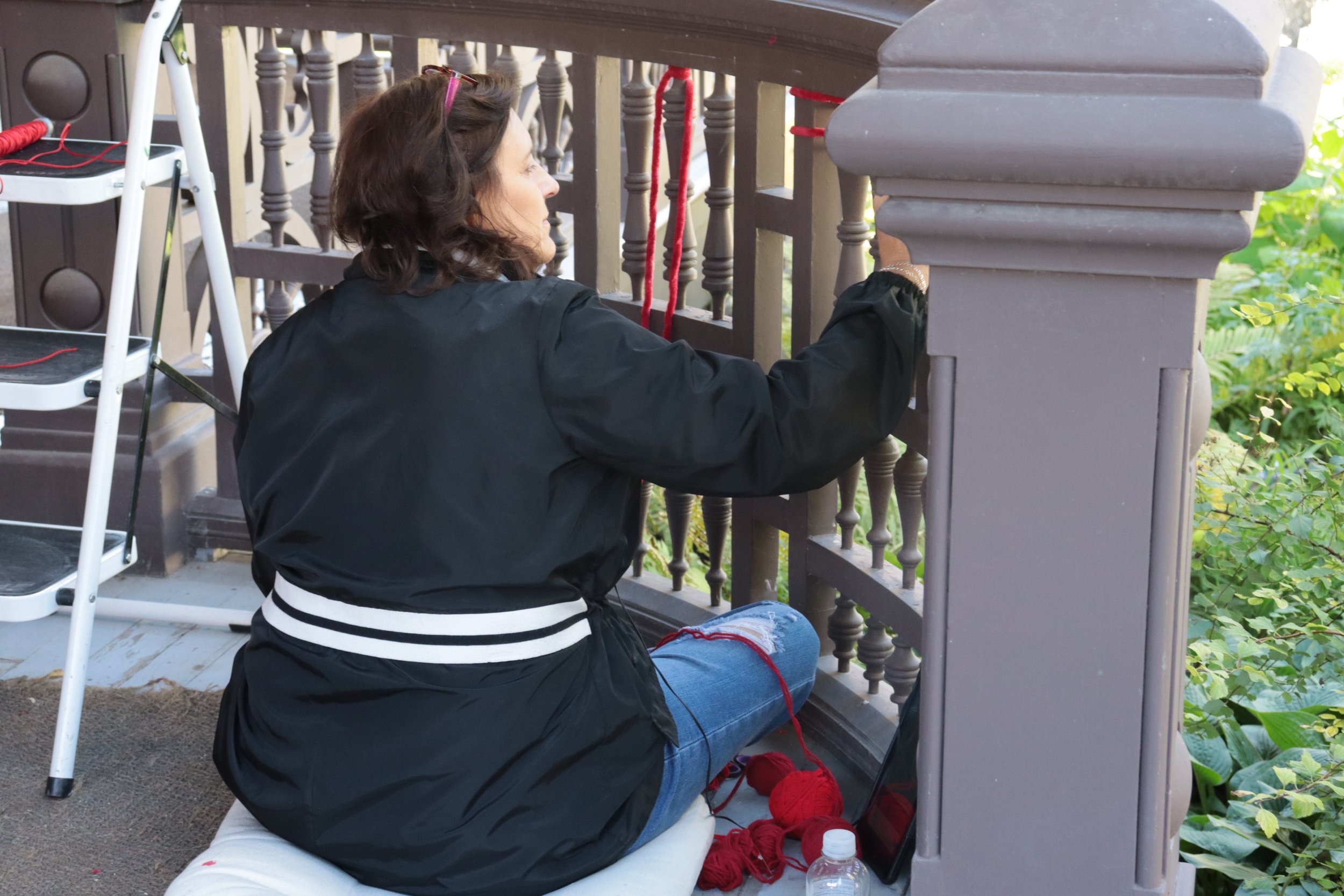Métis artist Tracey-Mae Chambers began installing a site-specific art piece at Dalnavert this morning as part of her #hopeandhealingcanada project. She has been travelling the USA and Canada since July 2021 to create installations that will help broach the subject of decolonization. The #hopeandhealingcanada pieces have been and will be displayed at residential school historic sites, cultural centres, museums, art galleries, and other public spaces across the country.
The installations contemplate themes of connection, reflection, and healing and are made of red yarn including large pre-made crochet and knit pieces. Her September 2022 installations contain splashes of orange yarn to mark the National Day for Truth and Reconciliation.
After the installation is dismantled, the yarn will be repurposed and reworked for another site. Chambers makes a point to reuse the yarn as it carries the stories of its journey.
After the #hopeandhealingcanada tour is done, Chambers will make the photographs and stories she’s collected along the way into a book.
The completed installation is now available to view for free on the veranda at Dalnavert and will be on display for several months.
About #hopeandhealingcanada in Tracey-Mae Chambers’ Own Words:
“From my vantage point the focus of the people in Canada shifted during the pandemic. It turned outwards after several centuries of a more self-centred gaze. Perhaps the forced isolation granted us the opportunity to look at the socio-economics of their own country while watching the chaos unfold in our southernly ill-behaved neighbours. Further to that have Canadians chosen love over hate in relation to the climate of overt racism we
see around us. I am only hypothesizing, and I have no idea what the outcome will be from these apparent moral awakenings. At times I find keeping a firm hold on my emotions both in the form of anger and angst seems impossible. Simply reading the comments section of any news media post relating to the ‘others’ can be an exercise in self control. The shameless contempt for all things that questions the status quo or nationalism is readily apparent. I am mortified and at times frightened by the way these people talk about Indigenous matters which they know almost nothing about. The time to change these views is now and it
starts with decolonization. The need to decolonize public spaces in Canada is always on my mind and I am conscience of this as I intuitively create in these spaces. Decolonization has become something of a catch phrase in Canada of late. The concept can be intimidating and feel hostile to some as what decolonization means can also unclear. Personally, it quite simply means ‘land back’. The implementation of the 94 recommendations of the Truth and Reconciliation Commission is imperative for us to move forward.”
“I want to illustrate the temporary nature of our lives, of our struggles and our achievements. The string represents the connectivity between each other and our environment as it will also not last forever. I hope to exhibit the photos at the end of the project. Each installation promotes discussion with the people who see it being built and eventually in the photos and stories of the installations that will be travelling Canada as an exhibition and in a book.”












About Tracey-Mae Chambers:
Tracey-Mae Chambers is a Métis installation artist. She is a member of the Métis Nation of Ontario. Her family is from, and some still reside in, the traditional Métis community in Sault Ste Marie and Penetanguishene, Ontario. She is travelling Canada and the USA creating site-specific art installations at residential school historical sites, cultural centres, museums, art galleries and other public spaces.
Visit her website, www.traceymae.com.


